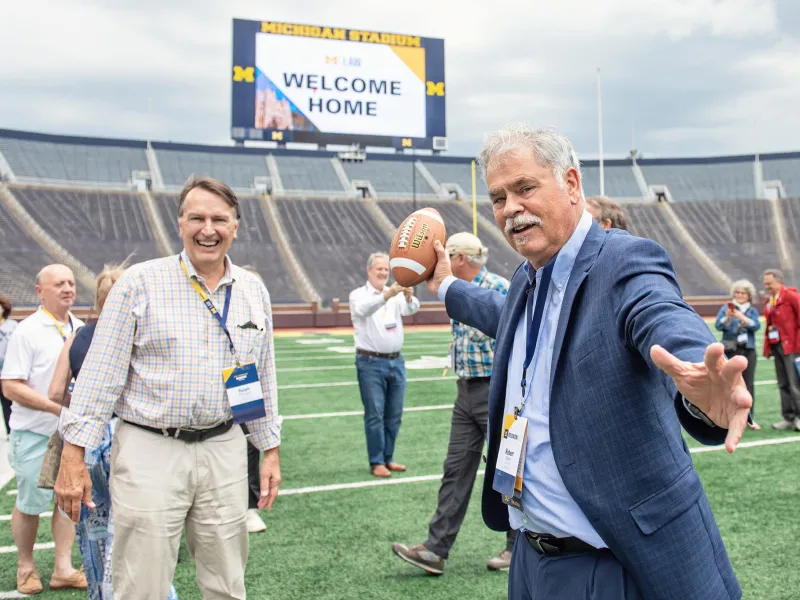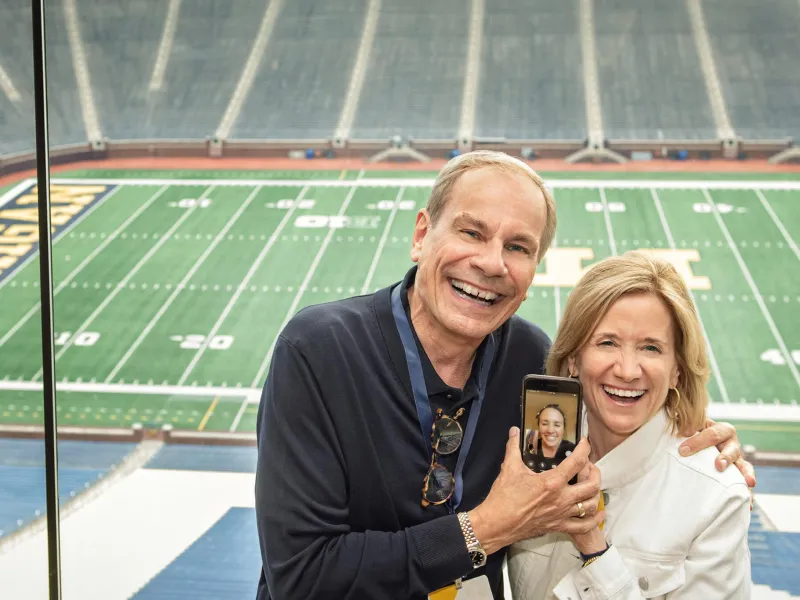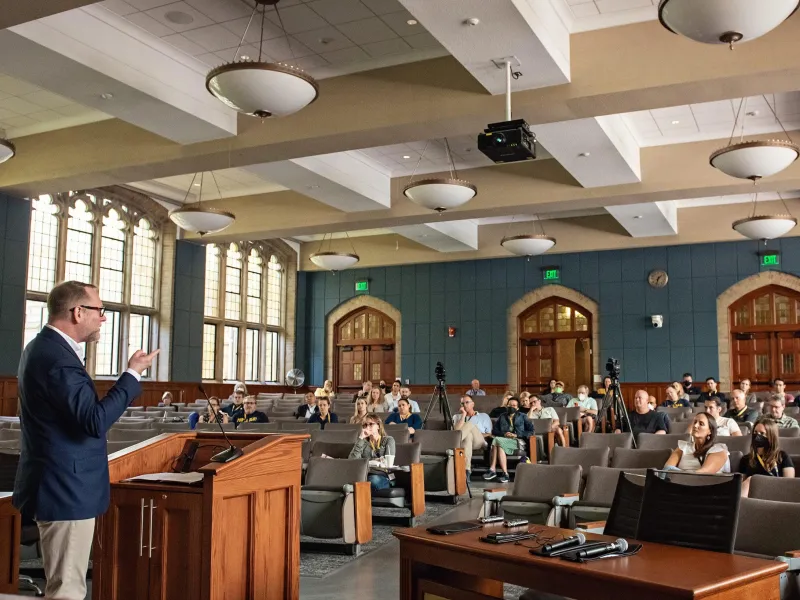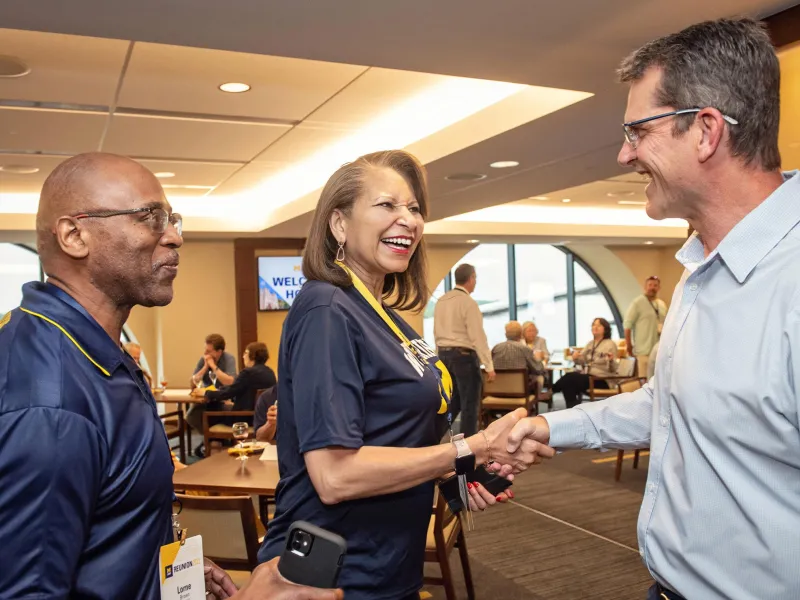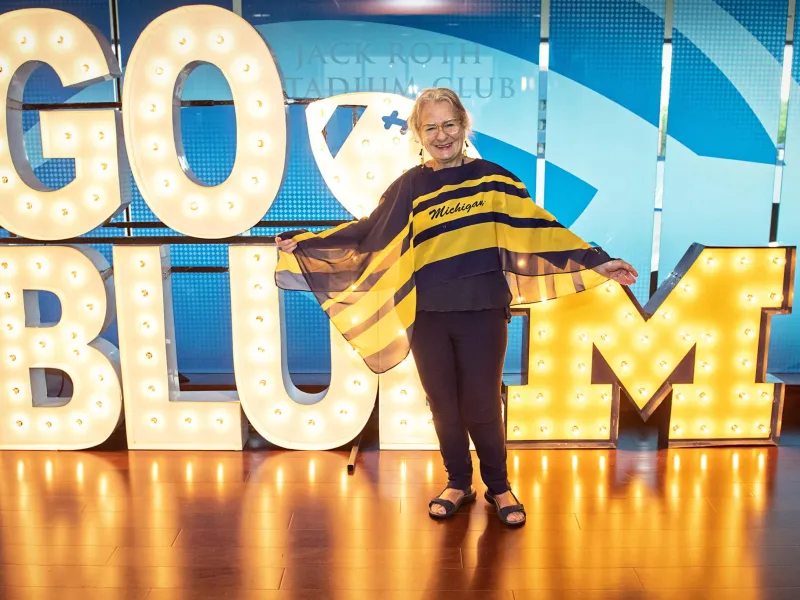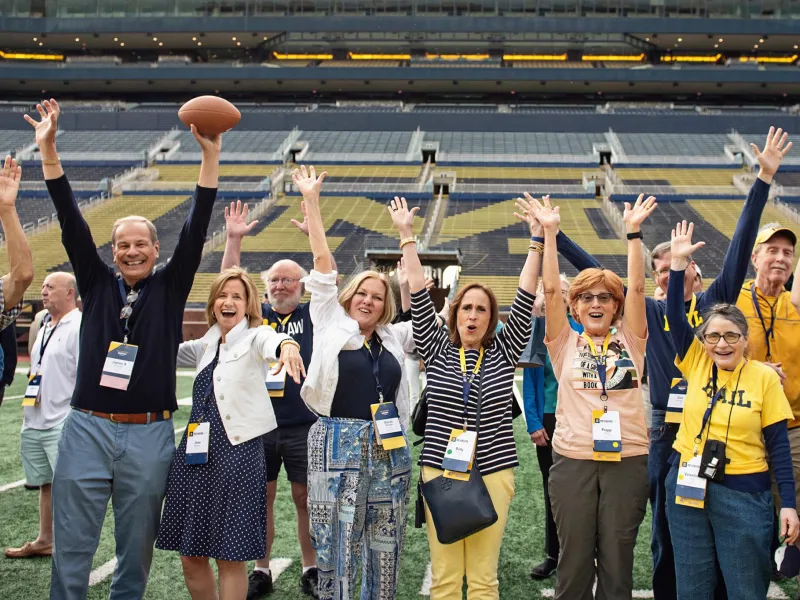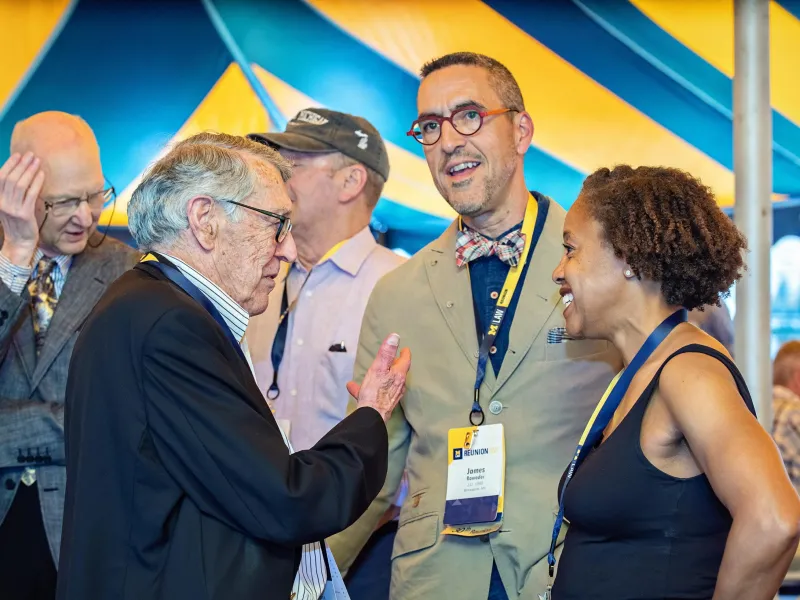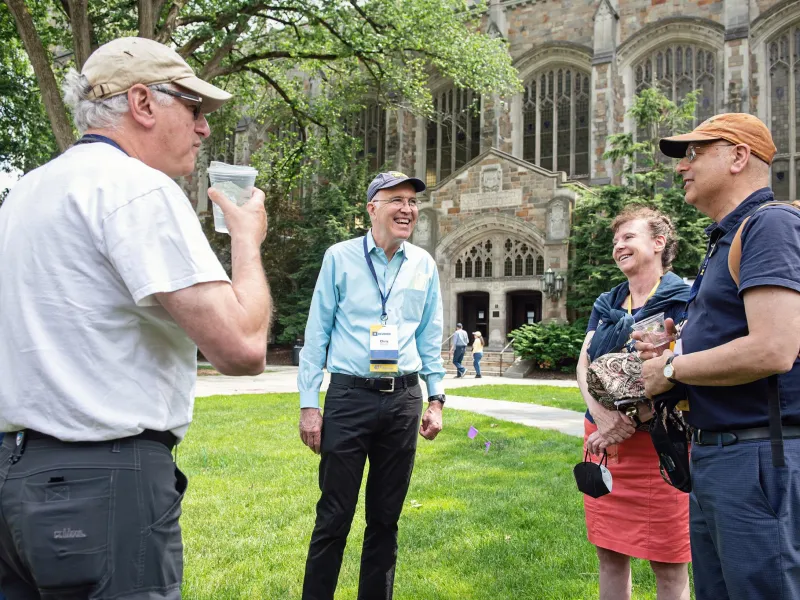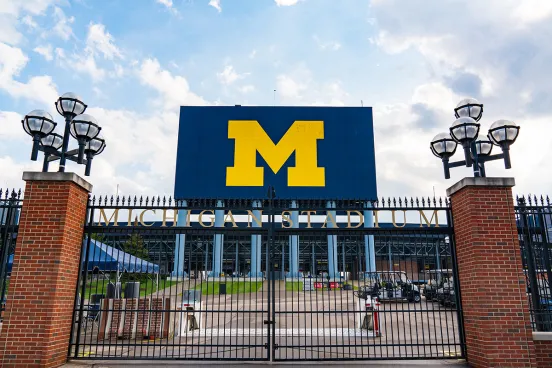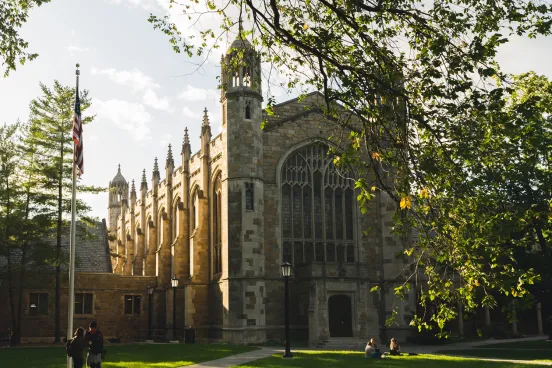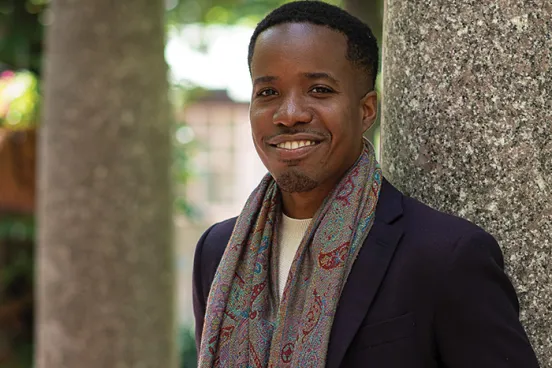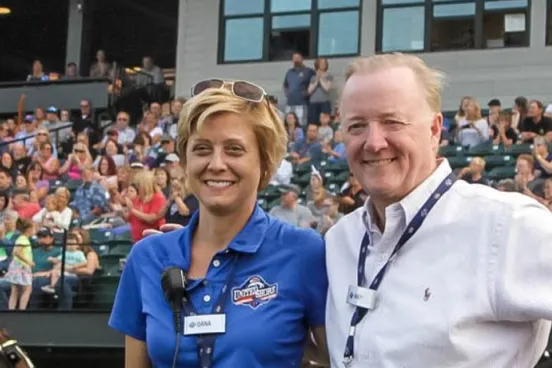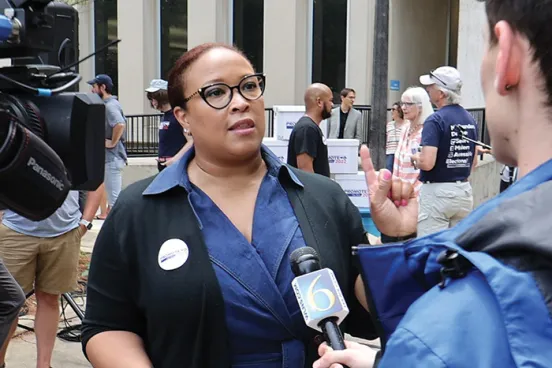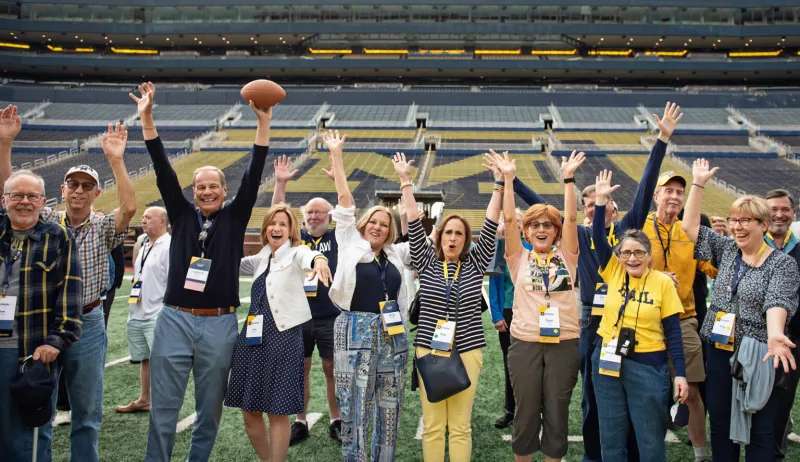
Michigan Law’s special spring Reunion invited alumni back to the Law Quad after their celebrations were canceled in 2020 and 2021 due to COVID-19. Without the usual tentpole event of fall Reunion—a tailgate, followed by watching Michigan football at the Big House—attendees were able to participate in a wide range of substantive programming presented by current and former faculty in the Quad. Read on for a taste of what Reunion attendees heard.
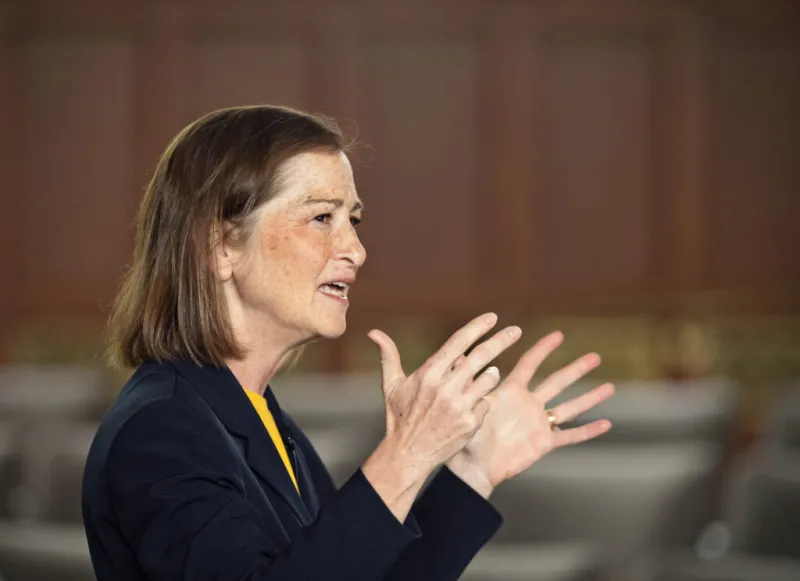
Professor McQuade on the nuances of law
Barbara McQuade, ’91, a professor from practice, spoke about her work as a prosecutor and legal analyst before turning the conversation to topics covered in one of the classes she teaches, National Securities and Civil Liberties. As an experienced analyst for MSNBC, McQuade is no stranger to the challenges of discussing critical issues like fundamental rights in formats that encourage snappy sound bites rather than detailed legal discussions. Against that backdrop, McQuade’s talk focused on the rights granted under the Constitution and the dangers of missing the nuances of the law.
“Our freedoms are what make America great, but they are what also make America vulnerable in this sound bite world where people speak in shorthand,” she said. “How do we prevent our rights from killing us? Well, that’s where lawyers come in, by promoting the rule of law. And so it’s on all of us to remind people that the law is not just a sound bite, it is a nuance.”
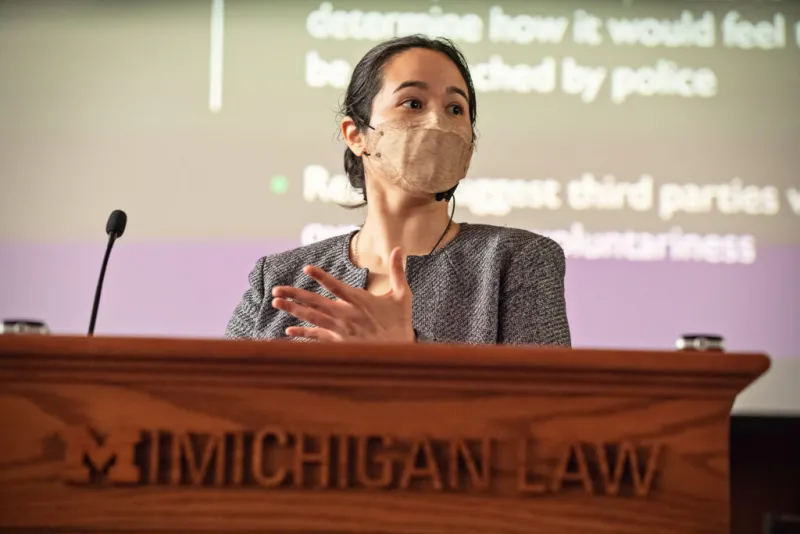
Professor Sommers on voluntary consent
Assistant Professor Roseanna Sommers discussed her work on experimental jurisprudence, which examines how empirical science can help clarify core concepts in law. Sommers studies how people understand the law and interact with each other, as well as the ways that the law can sometimes misunderstand those interactions. As she noted during the presentation, “I’m always trying to make the research speak to a real legal question, not something that psychologists think is interesting about the mind, but an actual problem that research can move the ball forward on.”
Her talk focused on her work related to the concept of compliance and how the law conceptualizes consent, particularly with regard to consent-based police searches, the most common form of search performed by law enforcement. Sommers presented the methods and findings of her recent paper, “The Voluntariness of Voluntary Consent: Consent Searches and the Psychology of Compliance,” which was co-authored by Vanessa Bohns and published in The Yale Law Journal.
Professor Prescott on online dispute resolution
J.J. Prescott, the Henry King Ransom Professor of Law, discussed the development of Matterhorn, an online dispute resolution platform that allows parties to avoid physically appearing in court. Matterhorn, which emerged from Prescott’s research at the Law School, is for people facing minor warrants or changes, fines, or other small legal issues without the need to hire an attorney.
Using Matterhorn may prevent you from spending all morning in traffic court to resolve a speeding ticket; but Prescott explained that its main purpose is to make court services more accessible for those who may not be able to miss work or have anxiety around going to court, as well as for those for whom English is a second language or who struggle with public speaking. Matterhorn isn’t trying to replace judges or make courtrooms obsolete, Prescott said; it is rather “a tool for improving how courts work and providing access to justice.”
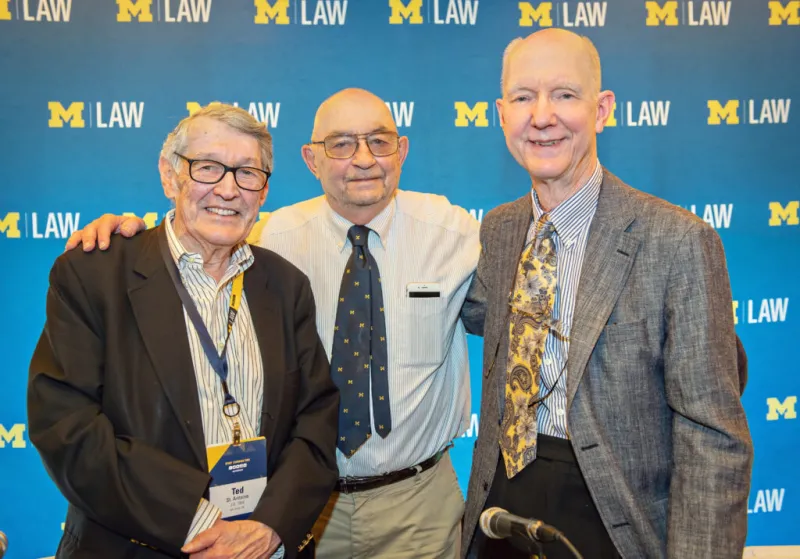
Emeritus professors on Michigan Law through the years
Emeritus faculty regaled attendees with anecdotes from their decades on the Law School faculty and spoke about how the legal world has evolved since the mid-1950s. The panel was led by Ted St. Antoine, ‘54, dean emeritus and the James E. and Sarah A. Degan Professor of Law Emeritus; Jerry Israel, the Alene and Allan F. Smith Professor Emeritus of Law; and Ed Cooper, the Thomas M. Cooley Professor Emeritus of Law.
St. Antoine, Israel, and Cooper all reflected on how their paths led them to teach or study at the Law School, citing the renowned faculty and irresistible charm of Ann Arbor. St. Antoine, the panel’s sole alumnus, spoke about several changes in legal instruction, specifically noting the growth of clinics as a positive development. He said that while he received a highly technical education, “Michigan Law is a very different institution from when I was a student. I truly believe that today’s law students are the beneficiaries of a richer, broader, deeper, and more practical education.”
The professors also noted with pride that today’s more diverse faculty and student body has enhanced the educational experience at the Law School. The consensus on the panel was that even though many things have changed at Michigan Law over the years, the School’s core mission remains the same. Referencing a quote by early 20th-century Supreme Court Justice Oliver Wendell Holmes Jr., Cooper said, “My sense of confidence in what we are doing at the Law School, however many it actually happens for, lies in the sense that we are giving the chance for our graduates to ‘live greatly in the law,’ which I find vastly reassuring.”
Bill Miller on so-called good things
Bill Miller, the Thomas G. Long Professor Emeritus of Law, discussed the main themes of his latest book, Outrageous Fortune: Gloomy Reflections on Luck and Life (Oxford University Press, 2020), which uses philosophy, theology, literature, and history to carefully examine the negative beliefs, angst, and anxieties that often arise, unanticipated, from so-called good things. Miller focused on the role and the value of the mediator, or messenger.
Rather than celebrating mediation, he looked at its dark side, using examples from Christianity, Judaism, Saga Age Iceland, and Ancient Egypt to show how the messenger is placed in a precarious position between two parties. Miller explained this makes him something of a “double agent”: not quite a third party, now the agent of one party, now of the other. He suggested that maybe the structural duplicity of the messenger was part of the reason he might be killed for bearing bad news. According to Miller, he might himself, in fact, be the bad news.
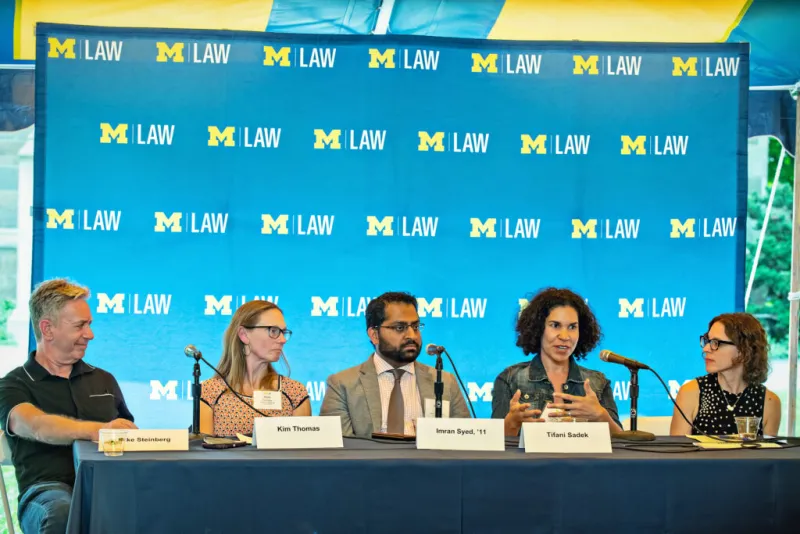
Updates from the clinical program
Debra Chopp, the associate dean for experiential education and director of the Pediatric Advocacy Clinic, led a roundtable session to discuss the latest from Michigan Law’s clinical program. Chopp and other members of the clinical faculty elaborated on the work of each clinic and the real-world impact the students have had through their work. The program not only helps students gain practical experience and develop foundational lawyering skills but also gives them the confidence they need to succeed beyond law school.
“This clinical program is Michigan Law at its very best. We are educating our students and building the next generation of lawyers and serving the most vulnerable members of our community,” said Chopp. Also in attendance were Tifani Sadek, co-director of the Zell Entrepreneurship Clinic; Michael Steinberg, director of the Civil Rights Litigation Initiative; Imran Syed, ’11, co-director of the Michigan Innocence Clinic; and Kim Thomas, co-director of the Juvenile Justice Clinic and Civil-Criminal Litigation Clinic.
